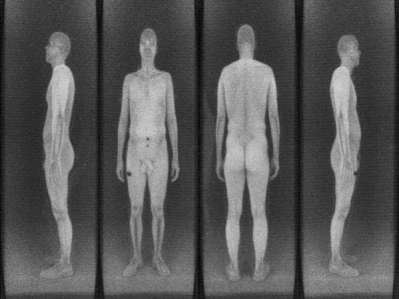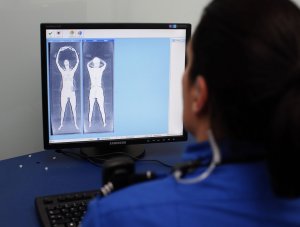Perhaps because the part that Brown is mentioned is in a different paragraph completely?
:doh
No, it isn't.
It's the in the same sentence. You're confusing a FOOTNOTE (#12) with a PARAGRAPH.
I guess that shows how many opinions you've read.
In any case, there was no period there. You put that in yourself.
Nope, because the part that mentions Brown is talking about him trying to back out of the security check after they had already discovered that there was "something" in that pocket.
No, that
would make no sense;
Brown doesn't have anything to do with that.
It is dishonest of you to try to say that I did not put things in proper context. You are the one that is trying to be dishonest by stating that I did something when I did not. And anyone can check what I just quoted by simply checking out the link that I had provided before. Which I will give again.
Then perhaps it was just incompetence, as I pointed out above, and unfamiliarity with judicial opinions. But I
assumed competence, and the placement of a period which wasn't there led me to believe it was intentional and dishonest. I will keep all this in mind in further interactions.
Again, I am not talking about the searches by themselves or how they are done. I am talking about giving consent by attempting to go through the security check point. What is so hard to understand about that? Why is it so hard to understand that you can give up your rights by giving consent? And that you give consent when and only when you attempt to go through that security checkpoint? Seriously here folks, Its not rocket science.
You jumped in defending Guy (which he refuses to do for himself, even now), so naturally it appeared that you were defending HIS points. I wasn't addressing YOUR points, but HIS.
And who defines what is minimally intrusive? You? A muslim packing a bomb? In any case did you not read what I wrote?
Brown is the controlling case. Note that I never claimed conclusively that the full-body scanners could never pass the test, only that they're obviously not the same thing as metal detectors and thus they need to be tested. The court in
Hartwell did not do so, so
Hartwell does not dispose of the issue.
Hell I didn't even ask a question in that and yet you write one sentence that is plainly an answer to.... something. I don't know what but it is plainly an answer to some question.
Then perhaps you shouldn't jump into the middle of an argument you're not actually a part of and argue your own thing. As I said, I wasn't addressing YOU.
Do you not know what it means to give your consent to do something? You seem to think that you cannot waive all of your rights away if you so choose. But you are dead wrong about that. You can waive ALL of your rights away at any time that you wish. In this case, by going through the security checkpoint, you are waiving away your 4th amendment rights.
There are numerous things you cannot waive. You cannot waive your right to life. You cannot, say, tell a cop it's OK to slam your face into a table and then sign a confession -- you can
still argue coercion and duress later. So no, you're wrong.
Do tell, mind showing me the relevent parts?
Which is what part? The use of the scanners? Or giving consent?
First I've never stated that you give your consent when you buy a ticket. I have only mentioned giving consent the moment you attempt to walk through the security checkpoint. There is a difference.
And yes, giving consent IS relevent. Completely and utterly so. If you do not give your consent and they still search you then they are violating your rights. If however you give your consent to be searched then you have waived away your 4th amendment rights. Which means that they do not apply. Which means that they could strip you down naked and give your bunghole a check. Provided that you knew that, that was a possibility before you attempted to go through.[/QUOTE]
The rest of this speaks to an argument I wasn't making or arguing with. I was arguing with Guy, not you.
But Hartwell
absolutely is not
only about consent, it's also about the level of intrusion, and you need to test both. That's right there in the conclusion, and in the part you erroneously thought was part of a different paragraph. It wasn't.
And Guy, having refused to defend what HE, not YOU said, as they're
different arguments, has conclusively proven he has no intention to.





